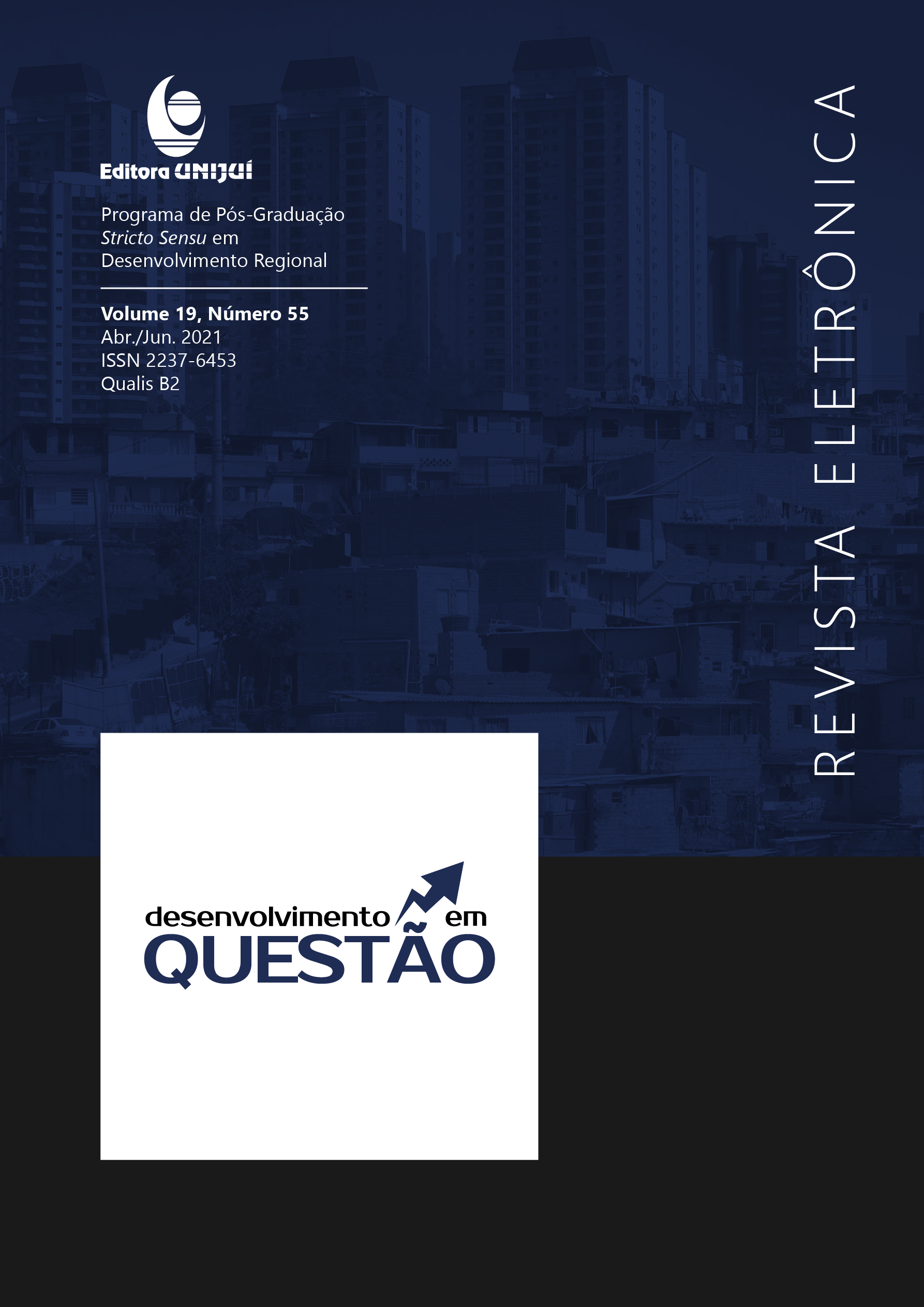Determinantes da Inadimplência do IPTU no Município de Santa Maria/RS
DETERMINANTS OF THE DEFAULT OF THE IPTU IN THE MUNICIPALITY OF SANTA MARIA/RS
DOI:
https://doi.org/10.21527/2237-6453.2021.55.10665Palavras-chave:
Município, Receita, IPTU, Inadimplência, CausasResumo
A demanda por serviços públicos municipais cresce, sendo imprescindível que as atividades de arrecadação e fiscalização sejam desenvolvidas de forma a combater a inadimplência, a sonegação fiscal e a ocorrência de processos em cobrança administrativa ou judicial. Esse estudo teve como objetivo identificar os determinantes da inadimplência do IPTU no município de Santa Maria (RS). Utilizou-se uma pesquisa descritiva, com abordagem quantitativa e técnicas estatísticas multivariadas. A regressão logística evidenciou que a inadimplência é influenciada pela alíquota, pela existência de área irregular, pelo aumento do valor tributável do imóvel, manifestando-se favoravelmente nas pessoas físicas, relacionando-se aos valores e localização dos imóveis, bem como as posturas dos contribuintes. Em uma perspectiva municipal, destaca-se que a identificação dos determinantes da inadimplência oportunizarão ao fisco o desenvolvimento de ferramentas objetivando a sua redução. Em relação a sociedade, o combate à inadimplência faz com que sejam reduzidas as obrigações tributárias para os contribuintes, impedindo o aumento dos impostos.
Downloads
Publicado
Como Citar
Edição
Seção
Licença
Ao publicar na Revista Desenvolvimento em Questão, os autores concordam com os seguintes termos:
Os trabalhos seguem a licença Creative Commons Atribuição 4.0 Internacional (CC BY 4.0), que permite:
Compartilhar — copiar e redistribuir o material em qualquer meio ou formato;
Adaptar — remixar, transformar e criar a partir do material para qualquer fim, inclusive comercial.
Essas permissões são irrevogáveis, desde que respeitados os seguintes termos:
Atribuição — Atribuição — os autores devem ser devidamente creditados, com link para a licença e indicação de eventuais alterações realizadas.
Sem restrições adicionais — não podem ser aplicadas condições legais ou tecnológicas que restrinjam o uso permitido pela licença.
Avisos:
A licença não se aplica a elementos em domínio público ou cobertos por exceções legais.
A licença não garante todos os direitos necessários para usos específicos (ex.: direitos de imagem, privacidade ou morais).
A revista não se responsabiliza pelas opiniões expressas nos artigos, que são de exclusiva responsabilidade dos autores. O Editor, com o apoio do Comitê Editorial, reserva-se o direito de sugerir ou solicitar modificações quando necessário.
Somente serão aceitos artigos científicos originais, com resultados de pesquisas de interesse que não tenham sido publicados nem submetidos simultaneamente a outro periódico com o mesmo objetivo.
A menção a marcas comerciais ou produtos específicos destina-se apenas à identificação, sem qualquer vínculo promocional por parte dos autores ou da revista.
Contrato de Licença (para artigos publicados a partir de 2025): Os autores mantêm os direitos autorais sobre seu artigo, e concedem a Revista Desenvolvimento em Questão o direito de primeira publicação.











